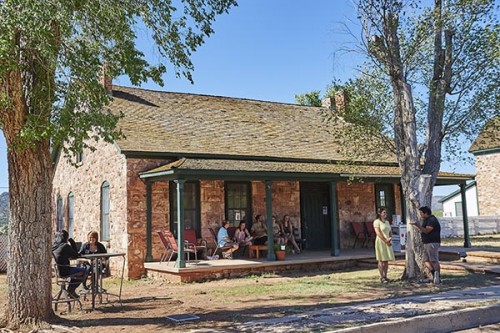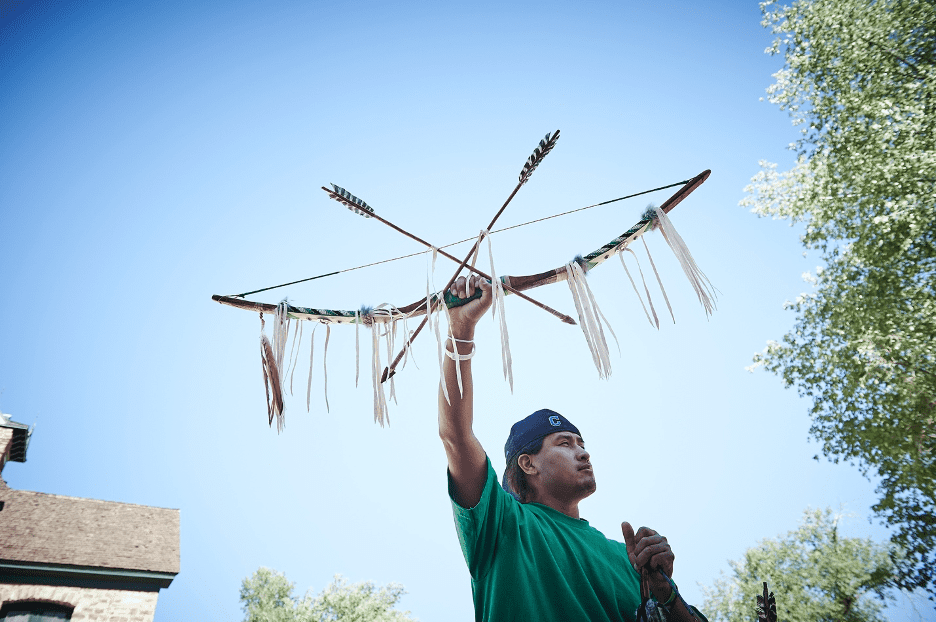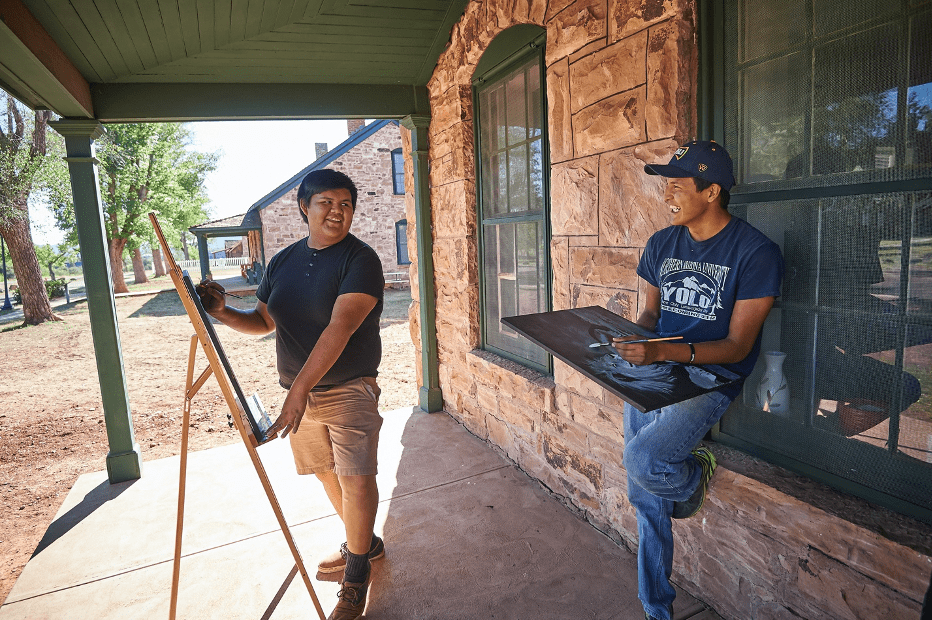
Francene Larzelere and Novalene Goklish, White Mountain Apache tribal members and founders of the Arrowhead Business Group Foundation (Arrowhead) in the U.S., will engage the voices of their fellow tribal members to tell a story of a grassroots initiative to change the national narrative about Native Americans living in reservations. Working together with their tribe and Johns Hopkins Center for American Indian Health, they will use different forms of media to showcase the successful Arrowhead youth entrepreneurship program, which demonstrates the value of culturally based solutions to public health disparities. From poverty and unemployment, this story arcs toward sustainable indigenous economic empowerment.

Bronson made bows and arrows (etc.) Photo: Ed Cunicelli
Grand Challenges, which is a family of initiatives that aims to “[foster] innovation to solve key global health and development problems,” will support Arrowhead to build a grassroots initiative to engage Native American youth, tribal leaders, and Elders to tell the story of an innovative ground-up initiative to inspire economic aspirations, mobility, and agency in a reservation setting that, like many others, has struggled for generations with stark poverty, high unemployment, and deep-rooted historic barriers to upward economic mobility.
By broadcasting their achievements through a variety of media, this project will break down deep-seated stereotypes about Native Americans today and flip the national narrative from poverty and dependency to the enormous capacity for indigenous values-based economic mobility, with lessons to heal the planet.
Learn about the beginning of the Apache Youth Entrepreneurship Program
The Arrowhead Model Has Demonstrated Public Health Impact and Commercial Success
For the past six years, the Tribe, in partnership with the Johns Hopkins Center for American Indian Health, designed a culturally based youth entrepreneurship model in their rural, remote reservation and evaluated it through a randomized controlled trial. The trial’s results show positive impacts on entrepreneurship knowledge, economic confidence and security as well as greater connectedness to their families and school up to two years after completing the program. In addition, Native youth participating in the entrepreneurship model had less marijuana use and fewer incidents of physical fighting, both critical precursors to other risk behaviors in adolescence.
Meanwhile, during the implementation period, youth and facilitators of the program opened a popular healthy foods café—the Arrowhead Café and Marketplace in Fort Apache, AZ—sourced by local farmers, with an adjacent marketplace with a linked 501c3 Foundation to wrap profits back into program growth[TLL1] .
Storytelling Messages Will Highlight Challenges and Successes
Through media, this initiative will show Native peoples and other Americans:
- The context of historical and social determinants of health that have driven abject poverty and unemployment for the First Americans, and ongoing gross neglect from other sectors of the US;
- The story of the Tribe’s recent success in designing, implementing, and demonstrating broad-based outcomes from a culturally aligned youth entrepreneurship program and linked youth-run café and marketplace to promote economic empowerment, renewed dignity, and a vision for the future for their peoples.
This project will drive national advocacy and social justice efforts to support Native peoples to reclaim economic and related social, educational and health equity.

Artist Alex Baha Sells his artwork through the Arrowhead Marketplace (Photo: Ed Cunicelli)
Storytelling to Use Video, Podcasts, Digital Media, and Feature-Length Stories
This initiative will use four forms of media to tell this story:
- a short film (20-30 minutes) to raise public awareness and advocacy efforts;
- a series of podcasts designed for broadcast and web downloads;
- digital media produced by Native youth “influencers” who participated in the Arrowhead Business Program, using such platforms as Tik-Tok, Instagram, and YouTube; and
- feature-length stories pitched to major print/electronic media outlets.
Stories will explain how Native American communities were driven into the most dire, economically deprived contexts in the U.S. while elevating indigenous voices to promote strengths-based, culturally congruent economic mobility, agency, and sovereignty.